News - Antimicrobial Resistance
 Antimicrobial resistance study begins on Welsh farms7 June 2022Bacterial sampling is now underway to assess the abundance and types of antimicrobial resistance (AMR) in bacteria on Welsh dairy, beef and sheep farms..
Antimicrobial resistance study begins on Welsh farms7 June 2022Bacterial sampling is now underway to assess the abundance and types of antimicrobial resistance (AMR) in bacteria on Welsh dairy, beef and sheep farms..

New Welsh animal project launched to combat antimicrobial resistance6 October 2021A Welsh project designed to help combat antimicrobial resistance in animals and the environment in Wales has been launched..

GW4 takes a world leading One Health approach to tackling the antimicrobial resistance pandemic17 June 2021The GW4 Alliance (Bath, Bristol, Cardiff and Exeter universities – GW4) formally launched their new ‘One Health’ antimicrobial resistance research consortium this week [Wednesday 16 June]. The World Health Organisation cites antimicrobial resistance (AMR) as one of the most significant risks facing the world. AMR threatens global health and development as it impacts on human, animal and plant health and also our environment, water safety and food security.

Study finds some reductions in community antibiotic resistant infections and dispensing19 May 2020A study by academics at the University of Bristol has found reductions in overall and individual antibiotic dispensing between 2013 and 2016 after evaluating, for the first time, national primary care prescribing policy on community antibiotic resistant infection.
 Farmer-led research tackling antimicrobial resistance wins Antibiotic Guardian Awards4 July 2019A project to tackle antimicrobial resistance (AMR) on English dairy farms has won a prestigious award at this year’s Antibiotic Guardian Awards held in Birmingham last week [Thursday 27 June]. The Bristol Veterinary School PhD project - Farmer Action Groups - was a winner in the Research category.
Farmer-led research tackling antimicrobial resistance wins Antibiotic Guardian Awards4 July 2019A project to tackle antimicrobial resistance (AMR) on English dairy farms has won a prestigious award at this year’s Antibiotic Guardian Awards held in Birmingham last week [Thursday 27 June]. The Bristol Veterinary School PhD project - Farmer Action Groups - was a winner in the Research category.
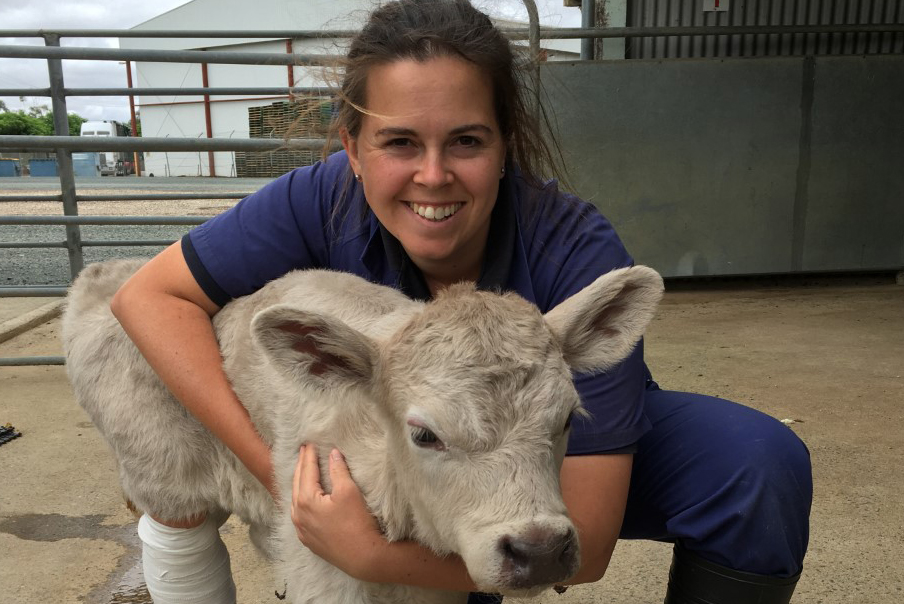 Vet School postgrad selected for the first ever national PhD Training Programme in antimicrobial resistance16 November 2018A postgraduate student from the University of Bristol’s Veterinary School has been selected for the first ever national PhD Training Programme in antimicrobial resistance (AMR) - launched by the Medical Research Foundation.
Vet School postgrad selected for the first ever national PhD Training Programme in antimicrobial resistance16 November 2018A postgraduate student from the University of Bristol’s Veterinary School has been selected for the first ever national PhD Training Programme in antimicrobial resistance (AMR) - launched by the Medical Research Foundation.
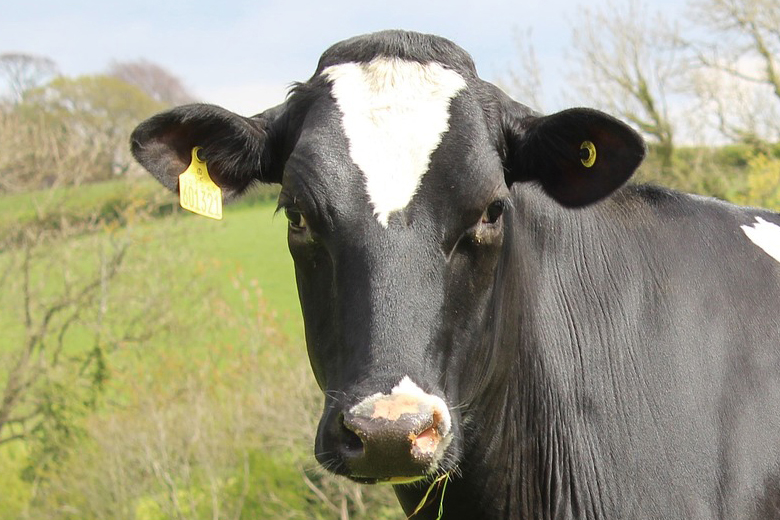 New study sheds light on medicines storage practices on UK dairy farms12 November 2018Researchers at the University of Bristol, supported by the British Veterinary Association, the British Cattle Veterinary Association and the Responsible Use of Medicines in Agriculture (RUMA) Alliance, are calling for veterinary surgeons in the UK to work together with their farmer clients to remove expired and inappropriate veterinary medicines from farms and dispose of them appropriately.
New study sheds light on medicines storage practices on UK dairy farms12 November 2018Researchers at the University of Bristol, supported by the British Veterinary Association, the British Cattle Veterinary Association and the Responsible Use of Medicines in Agriculture (RUMA) Alliance, are calling for veterinary surgeons in the UK to work together with their farmer clients to remove expired and inappropriate veterinary medicines from farms and dispose of them appropriately.
 Bristol Veterinary School’s AMR Force wins Antibiotic Guardian Award4 July 2018Bristol Veterinary School’s AMR Force research group has won a prestigious award at this year’s Antibiotic Guardian Awards in recognition of the group’s achievement in tackling antimicrobial resistance (AMR).
Bristol Veterinary School’s AMR Force wins Antibiotic Guardian Award4 July 2018Bristol Veterinary School’s AMR Force research group has won a prestigious award at this year’s Antibiotic Guardian Awards in recognition of the group’s achievement in tackling antimicrobial resistance (AMR).
 Bristol researchers win EPSRC fellowship to develop AI for early disease diagnosis in calves22 June 2018Two researchers at the University of Bristol have been awarded a joint Engineering and Physical Sciences Research Council (EPSRC) UK Research and Innovation (UKRI) Fellowship to investigate early disease diagnosis in dairy calves using artificial intelligence (AI) methods.
Bristol researchers win EPSRC fellowship to develop AI for early disease diagnosis in calves22 June 2018Two researchers at the University of Bristol have been awarded a joint Engineering and Physical Sciences Research Council (EPSRC) UK Research and Innovation (UKRI) Fellowship to investigate early disease diagnosis in dairy calves using artificial intelligence (AI) methods.
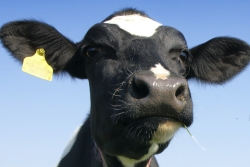 Bristol researchers to benchmark medicine use across UK beef farms14 June 2018Researchers at the University of Bristol are to quantify and compare farm animal medicine use within and across UK beef operations. The project aims to help demonstrate and communicate the gains made to consumers, processors, retailers and policy makers.
Bristol researchers to benchmark medicine use across UK beef farms14 June 2018Researchers at the University of Bristol are to quantify and compare farm animal medicine use within and across UK beef operations. The project aims to help demonstrate and communicate the gains made to consumers, processors, retailers and policy makers.
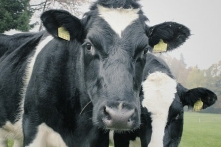 Bristol Vet School at the forefront of combatting antimicrobial resistance28 April 2018Researchers from the Bristol Veterinary School at the University of Bristol are leading the way with farmers to combat and change antimicrobial (AM) use on farms. Antimicrobial resistance - or AMR - is a global threat, with an estimated 700,000 people dying from resistant infections every year.
Bristol Vet School at the forefront of combatting antimicrobial resistance28 April 2018Researchers from the Bristol Veterinary School at the University of Bristol are leading the way with farmers to combat and change antimicrobial (AM) use on farms. Antimicrobial resistance - or AMR - is a global threat, with an estimated 700,000 people dying from resistant infections every year.
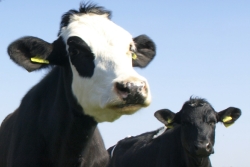 Food industry specialists come together for animal health and welfare event7 March 2018Progressing animal welfare will be the focus of an Animal Health and Welfare Day jointly hosted by the University of Bristol Veterinary School and continental meat supplier Winterbotham Darby tomorrow [Thursday 8 March]. This annual event, now in its third year, will bring together academics, researchers, NGOs, major retailers, journalists and industry partners across the food sector.
Food industry specialists come together for animal health and welfare event7 March 2018Progressing animal welfare will be the focus of an Animal Health and Welfare Day jointly hosted by the University of Bristol Veterinary School and continental meat supplier Winterbotham Darby tomorrow [Thursday 8 March]. This annual event, now in its third year, will bring together academics, researchers, NGOs, major retailers, journalists and industry partners across the food sector.
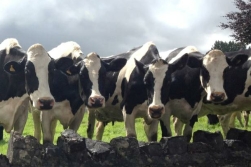 Bristol Vet School leading the way to change antimicrobial (AM) use on farms14 November 2017Researchers from the Bristol Veterinary School at the University of Bristol are leading the way to inspire and change antimicrobial (AM) use on farms and in veterinary prescribing practices.
Bristol Vet School leading the way to change antimicrobial (AM) use on farms14 November 2017Researchers from the Bristol Veterinary School at the University of Bristol are leading the way to inspire and change antimicrobial (AM) use on farms and in veterinary prescribing practices.
 How are antimicrobials used around the world in food-producing animals?31 August 2017A new study led by academics at the Bristol Veterinary School has reviewed the literature on the use of antimicrobials (AM) in livestock practice together with the views of stakeholders. The study found that although there are some barriers to change, there is a clear awareness of the issue among the livestock sectors and a willingness to modify AM use.
How are antimicrobials used around the world in food-producing animals?31 August 2017A new study led by academics at the Bristol Veterinary School has reviewed the literature on the use of antimicrobials (AM) in livestock practice together with the views of stakeholders. The study found that although there are some barriers to change, there is a clear awareness of the issue among the livestock sectors and a willingness to modify AM use.
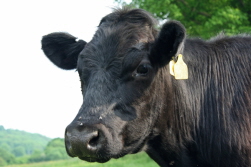 How can diagnostics deliver a more effective use of antibiotics in animals?10 July 2017Are there better ways to diagnose animals in need of antibiotics on livestock farms? How will farmers and veterinarians use novel diagnostics in the fight against animal disease? These are some questions a consortium of seven academics – including two veterinarians from the University of Bristol's School of Veterinary Sciences - will address thanks to a £1.75 million grant to understand how better diagnostics can encourage responsible antibiotic use in animals.
How can diagnostics deliver a more effective use of antibiotics in animals?10 July 2017Are there better ways to diagnose animals in need of antibiotics on livestock farms? How will farmers and veterinarians use novel diagnostics in the fight against animal disease? These are some questions a consortium of seven academics – including two veterinarians from the University of Bristol's School of Veterinary Sciences - will address thanks to a £1.75 million grant to understand how better diagnostics can encourage responsible antibiotic use in animals.
 Stewardship policy reduces antimicrobial use on farms5 January 2017Evidence suggests the frequent use of certain antimicrobials (AM) in food-producing animals may reduce their effectiveness as treatments for both animals and humans. Researchers at the University of Bristol’s School of Veterinary Sciences are finding novel ways to address these concerns, working with farmers to empower them to develop policies to promote more responsible use of medicines on farms.
Stewardship policy reduces antimicrobial use on farms5 January 2017Evidence suggests the frequent use of certain antimicrobials (AM) in food-producing animals may reduce their effectiveness as treatments for both animals and humans. Researchers at the University of Bristol’s School of Veterinary Sciences are finding novel ways to address these concerns, working with farmers to empower them to develop policies to promote more responsible use of medicines on farms.
 Antibiotics could be cut by up to a third, say dairy farmers3 October 2016Nine in 10 dairy farmers participating in a new survey from the Royal Association of British Dairy Farmers (RADBF) say that the farming industry must take a proactive lead in the battle against antibiotic resistance. Those questioned also think that over the next five years they could cut their own antibiotic use by almost a third in dry cow therapy and a fifth in clinical mastitis.
Antibiotics could be cut by up to a third, say dairy farmers3 October 2016Nine in 10 dairy farmers participating in a new survey from the Royal Association of British Dairy Farmers (RADBF) say that the farming industry must take a proactive lead in the battle against antibiotic resistance. Those questioned also think that over the next five years they could cut their own antibiotic use by almost a third in dry cow therapy and a fifth in clinical mastitis.